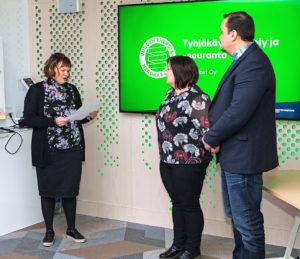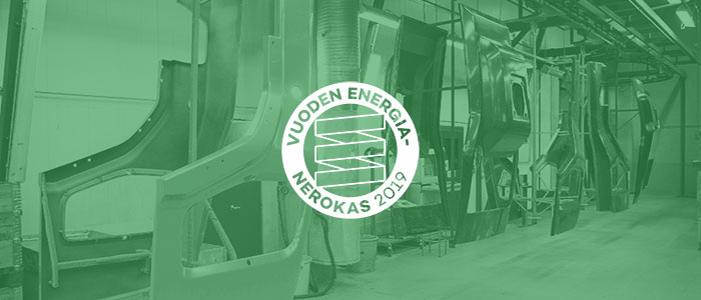Responsibility and global competitiveness through energy efficiency
In 2017, MSK Group Oy committed itself to the Energy Efficiency Agreement initiative that aims to reduce the consumption of electricity by 4% by 2020 and by 7.5% by 2025. In addition, we also rolled out the national Energy Efficiency System (EES+) in 2018, with MSK Plast Oy working as the entire group’s pilot.
No one can deny the constant rise of general expenses each year (salaries, electricity, heating, cargo etc.), which businesses must try to eliminate as best they can by developing their operations to maintain competitiveness in a global, highly competitive market. The development of energy efficiency is one of these means.
Of course, it would not be very responsible to advertise one’s energy efficiency if the quality of the production is poor. And, then again, it is doubtful that competitiveness could be attained by producing substandard products with energy-efficient processes. Each faulty item requires twice the energy, CO2 emissions, materials and salaries—and the cost of disposal of the faulty item.
With quality taken care of, it is easier to concentrate on how all production can be done as energy-efficiently as possible and with the least possible CO2 emissions or, in the best case scenario, completely carbon-neutrally.
In addition, assuming environmental liability for all of our actions is crucial: the future of our planet is in the hands of every one of us, and now is the time to act, also for reasons of business continuity, so that future generations can live a good life in Finland and elsewhere.
Plastic is a rather pleasant material because of its exceptionally low carbon footprint, compared, for example, to cardboard, steel or glass. Finland is one of the leading countries globally when it comes to recycling plastic, while the case in regrettably many countries, particularly the developing ones, has a lot of room for improvement.
One of the first energy efficiency projects we had was the idling walks started in 2017, where a workgroup would visit all production and office facilities during a weekend with no production. We found dozens of items where we could save energy, and fixing them did not even require any investments, just basic maintenance and revisions of operating procedures.
Many factories are closed for the weekends, public holidays and perhaps even during the summer holidays. The weekends alone constitute 28% of the year, and the customer is not willing to pay for how much energy the factory consumes for idling when it is not producing products. It is also easy to measure the idling energy, and the good results we got gave us great inspiration to undertake other energy efficiency projects, as well.
For example, we have entirely shifted to LED illumination, rolled out heat recovery systems, taken energy efficiency into account in the replacement investments of all machines and equipment, developed a more energy-efficient single-layer painting technique, etc. The cumulative result of these and many other, smaller measures in 2017–2019 was already more than one million kilograms CO2 emission reductions!
At the end of last year, we also received recognition for the work we did, with Motiva and the Energy Authority granting us the Vuoden energianerokas 2019 -award. This is a good place to continue from. We already have plans for the current year for truly significant CO2 emission reductions. Together towards a cleaner tomorrow!

Operative Manager Suvi Paavola and Production Manager Teemu Ritala receiving an Energy Wise 2019 -award.



